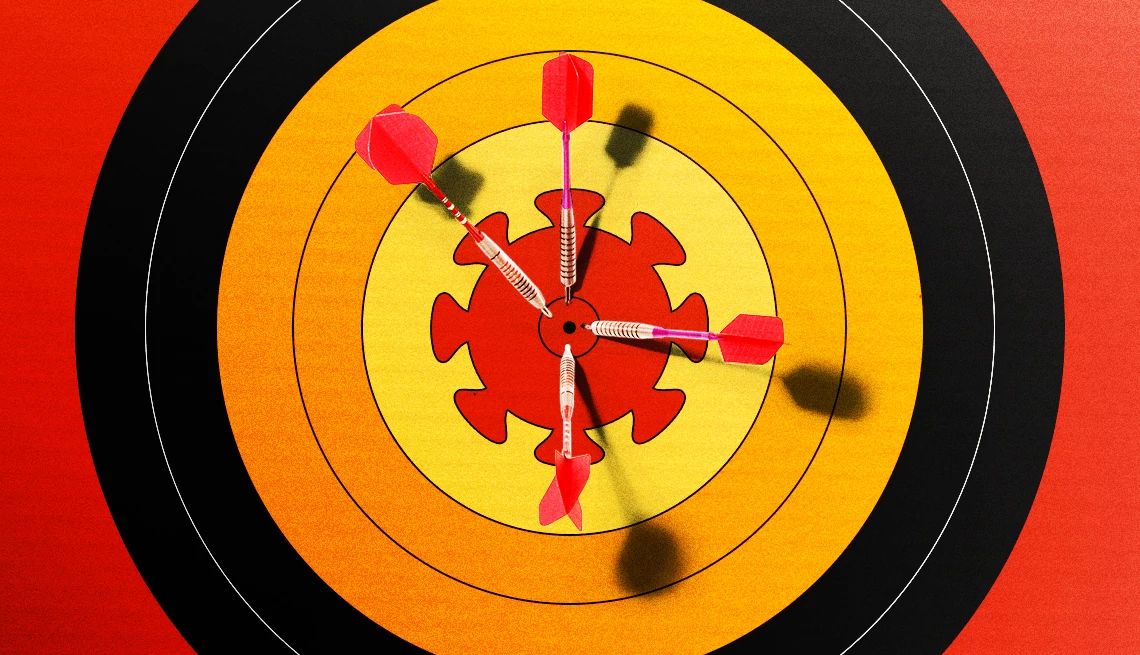AARP Hearing Center


For the first 18 months of the COVID pandemic, I managed to dodge the pathogen. Friends and colleagues fell sick left and right, and two of my college classmates died from the disease, as did a beloved fourth-grade religion teacher. I felt like I was walking between the raindrops, doing what I could to avoid contagion and getting whatever vaccinations were on offer.
But in September 2021, my turn came. Or should I say, my first turn, out of four ... and counting.
My stepdaughter fell ill with the Delta variant while teaching nursery school. Two days later, I woke up coughing and feverish, and I knew that my lucky streak was over. I went to a local urgent care center on Long Island, and it took the nurse two minutes to confirm that I was positive.
I’ll admit, I panicked. Although I’d been otherwise healthy, I have hypertension, and I knew that put me at higher risk of COVID complications. This was three months before the antiviral drug Paxlovid was approved for emergency use, and monoclonal antibodies were the gold standard of treatment. So I asked my primary care doctor to prescribe them, and I drove myself — coughing and gasping for breath — to Mt. Sinai Queens to get these miracle antibodies.
All about coronavirus
- COVID’s summer wave
- Summer cold or COVID?
- Isolation guidelines change
- Members only: COVID 4 times
- Eligible for a booster shot?
- Medicare coverage details
Did they work? Who knows? I recovered from my COVID symptoms within a month, but shortly afterward, during a routine physical, my blood work indicated that I was dangerously low in platelets. That condition landed me in the hospital four times over the next six months with bleeding episodes and has put me on a long-term treatment schedule.
Every 37 days, I have to get a platelet transfusion so my blood will be able to clot if I injure myself. To this day, no doctor will definitively say whether it was COVID or the monoclonal antibodies that caused this chronic blood condition, but I am convinced it was the virus. That month of uncontrollable coughing and wheezing traumatized me and changed my body.
Despite my caution, I caught COVID again in May 2022 — including a rebound case that lasted six extra days — and then yet again that December. Each time, likely thanks to Paxlovid and vaccine boosters, my symptoms were less severe and my recovery time was shorter.































































More From AARP
8 Major Health Risks for People 50 and Older
A look at the top killers — and how to dodge themHave COVID-19? Here’s How Long You Need to Isolate
CDC updates guidelines for people with a coronavirus infectionAre COVID Treatments Still Free?
Here’s what to expect now that the medications are commercially availableRecommended for You